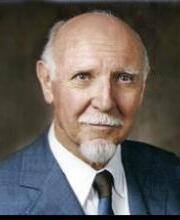Raymond Cattell
Theory of Personality - 16 Base Traits
Culture - Fair Intelligence Tests

Raymond Cattell was an influential psychologist who developed new analytic techniques that allowed for more nuanced empirical measurements of the components of personality and intelligence.
Cattell did his doctoral work at University College London, under the supervision of the renowned psychologist and statistician, Charles Spearman. After working with E.L. Thorndike at Columbia University, Cattell joined the Harvard faculty in 1941. His three years at Harvard were particularly influential to his developing theory of personality because of the concentration of creative colleagues, including Henry Murray and Gordon Allport, who shared his interest in personality.
While at Harvard Cattell first developed the idea that the new factor-analytic method that Spearman had pioneered to study cognitive abilities could also be a powerful tool for identifying the components of personality. This insight eventually yielded his widely referenced theory of personality, which consists of 16 components, or “base traits.” Cattell also originated the distinction between “fluid intelligence” (the ability to analyze novel problems) and “crystallized intelligence” (the ability to apply skill and knowledge to familiar problems), a distinction that still figures prominently in many theories of the components of intelligence.
Following his highly productive time at Harvard, Cattell continued to research and publish profusely. He is listed as number 16 on the American Psychological Association’s list of the 100 Most Influential Psychologists of the 20th century.
Sources
Eminent psychologists of the 20th century. (July/August, 2002). Monitor on Psychology, 33(7), p.29.
Gillis, J. (2000). Raymond Bernard Cattell: A view of his life with reflections. Retrieved on December 1, 2007 from http://www.stthomasu.ca/%7Ejgillis/bio.htm